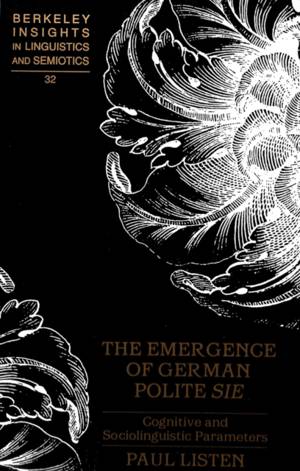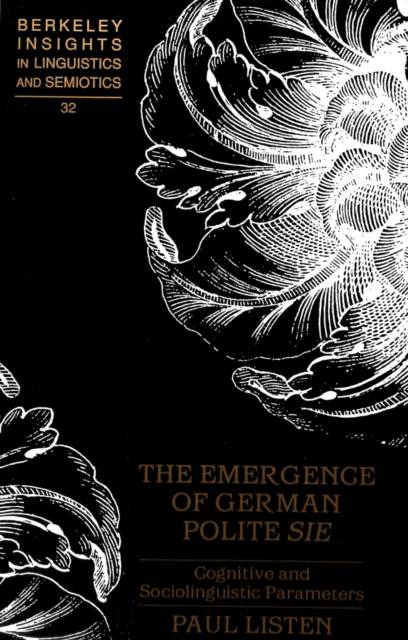
- Afhalen na 1 uur in een winkel met voorraad
- Gratis thuislevering in België vanaf € 30
- Ruim aanbod met 7 miljoen producten
- Afhalen na 1 uur in een winkel met voorraad
- Gratis thuislevering in België vanaf € 30
- Ruim aanbod met 7 miljoen producten
Zoeken
€ 71,45
+ 142 punten
Omschrijving
For a speaker of German the tone of personal interaction is set by his or her choice of address pronoun. Relationships are both created and reflected in the use of du or Sie in conversation. The Emergence of German Polite 'Sie' uncovers the sociocultural and cognitive linguistic strategies that originally brought the third person plural Sie address into the German language some three hundred years ago. Although a widely proposed explanation derives Sie from anaphora for plural abstractions of address like Euer Gnaden (Your Graces) empirical corpus analysis of historical texts does not bear this hypothesis out. Based on some 1'500 tokens of High and Low German usage from the fifteenth to the eighteenth century and collected from original unedited sources, this study concludes that third person plural morphology was motivated by much broader conceptual metaphors and metonymies for sociopolitical power, pragmatic indirectness, and social discourse in early modern German-language communities.
Specificaties
Betrokkenen
- Auteur(s):
- Uitgeverij:
Inhoud
- Aantal bladzijden:
- 373
- Taal:
- Engels
- Reeks:
- Reeksnummer:
- nr. 32
Eigenschappen
- Productcode (EAN):
- 9780820438535
- Verschijningsdatum:
- 1/01/1999
- Uitvoering:
- Hardcover
- Formaat:
- Genaaid
- Afmetingen:
- 160 mm x 230 mm
- Gewicht:
- 719 g

Alleen bij Standaard Boekhandel
+ 142 punten op je klantenkaart van Standaard Boekhandel
Beoordelingen
We publiceren alleen reviews die voldoen aan de voorwaarden voor reviews. Bekijk onze voorwaarden voor reviews.







